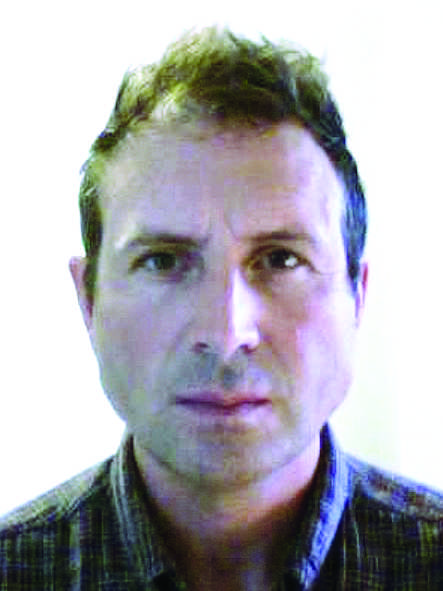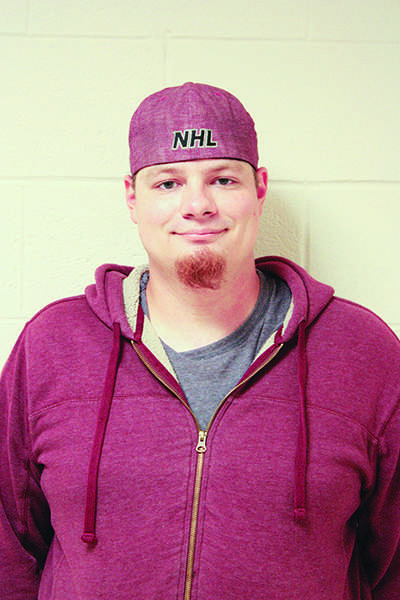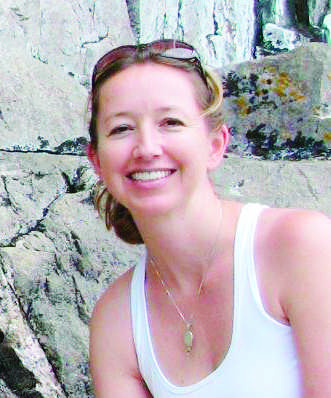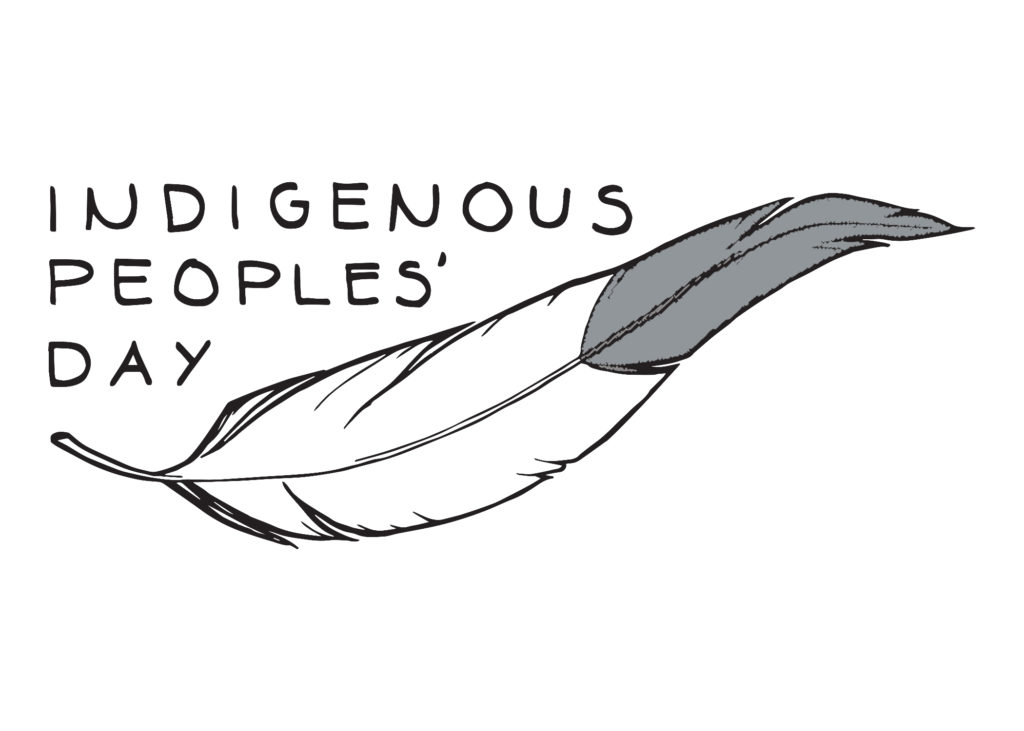The Rise of Indigenous People’s Day

By Jud Sojourn
Ongoing in popular media is a debate over whether Columbus brought in genocide intentionally or through negligence, and whether negligent mass murder counts as genocide or if it has to be intentional —splitting hairs in other words. He was deliberate, full of malice, and plain evil in his massacres, torture and taking of slaves. Poisoned and disoriented by power, there was no one in his own group that would correct him; he had a true “Heart of Darkness”—it was “Apocalypse Now,” only back then. According to Dominican priest Bartolomé de las Casas, author of “A Short Account of the Destruction of the Indies” (1542) Columbus’s policies of mutilation and murder resulted in the deaths of some three million indigenous people between 1492 and 1516. Every town was staffed with its own abattoir—a torturer whose sole purpose it was to hurt local indigenous people. Although Italian, Columbus worked for the Spanish Crown, and as the wave of his cruelty swept outward, the number of dead and disappeared would rise to twenty million. Columbus’s own journals are singularly incriminating. He became insane and egomaniacal while those around him casually normalized and internalized his insanity.
The country is moving en masse, slowly but surely towards dismantling or rebranding Columbus Day. If the issue is Italian American honoring then I would ask for the recognition of a different Italian historical figure—DaVinci comes to mind. Every year, to my knowledge, Italian crowds gather at Columbus’s birthplace in Genoa to protest his image being used to represent everyday Italians.One might think that universities ought to be on the leading edge of creating better, more cohesive societies. Right now the Board of Trustees’ hesitancy in making a decision on whether NMU will recognize Indigenous Peoples’ Day will put NMU last among institutions of higher learning making the changeover. It would also seem to disregard the commitment of the Faculty Senate and the ASNMU—both bodies who opted to pass it as written.
These topics—Mascots, Columbus Day and so on distract successfully from our focusing on more essential issues. There are two reconciliations that must occur in America before the country can move forward. First is a reconciliation process addressing the phase of “the great dying” where massacres and the intentional use of smallpox decimated indigenous populations. In Penobscot country, the “Scalp Proclamation” (1755) in the northeast offered non-native colonials a bounty of roughly one year’s salary for killing a Native American man or woman, and slightly less for killing a child. Americans need to understand this as their legacy.
Second is a reconciliation addressing the forced removal and reservation phase (reservations were conceived as prison camps hidden from public view). This phase includes the roughly 130 years (1830-1960) of forced assimilation, cruelty and abuse in church-run boarding schools. Nearly all of the children were taken, nearly all of the children were hurt and many, a great many, never made it home. Neither churches nor Americans on the whole have worked toward reconciliation in any broad recognizable way in the US. Some work has been done in Canada as part of the Truth and Reconciliation Commission, but little has been done stateside as of yet.
If the NMU Board of Trustees were to go ahead with Indigenous Peoples’ Day as it is now written-including a recognition of genocide-it may create momentum toward these essential reconciliations. Without that language, an approval of recognition of Indigenous Peoples’ Day would be at once anemic and half-hearted. If the Board continues to sideline the issue, that can only translate as either base impassivity or as their not having had time to fully understand the issue. Anyone who has read Las Casas or the journals of Columbus will come away with a profound sense of sadness alongside a great motivation to support indigenous renewal in America. It is only human.
We live and learn here on the shores of gchi-gaming, the great or expansive crossing. It is truly a great crossing to get from the lies Americans were told and continue to tell themselves about the country’s origins to a place of solidarity with First Peoples. But, once the knowledge is in place then the hearts will begin to follow a luminous journey across. In these times where we see more and more division, we may do well to move forward with meaningful resolve. Two roads seem to be set before us. On the one lies hesitancy, defensive sheltering and the risk of stagnancy (which means continued exclusion of the First Peoples of the continent), on the other is a challenging but bright journey to reconciliation.
We We Must Preserve Columbus Day
 By Benny Garbacz
By Benny Garbacz
Every second Monday of October we observe Columbus Day, a day meant to remember the man who, against many struggles, achieved his dream and advanced the expansion of exploration through his “discovering” of America.
However, we now know more than “1492 Columbus sailed the Ocean Blue” and have been presented with the indisputable facts of Columbus’ contribution to the downfall and dehumanization of the Native Americans. He pushed forward the first domino that lead to the mass rape and slaughter of millions who’ve settled America long before Columbus had even seen the shores of the New World. Yet we still have a day dedicated to Christopher Columbus, despite the knowledge of his misdeeds.
It has been rather divisive to stand on one side or the other in regards to whether the October 9 should stand as a day of observance. It is understandable that tensions are high when faced with the reality that
many people of Native American descent are in poorer positions than most and that we are able to trace the very beginning of their downfall to one man and his voyage. For this reason, we must preserve Columbus Day.
Columbus and his voyages are the very beginning of the establishment of the new civilizations of the Western Hemisphere. The conquest of the New World lead to the most powerful nation the world has ever seen: the United States. This nation alone has been responsible for the greatest advancements and regressions in human history. The U.S. has awed the world with its crushing of the forces of evil such as the Nazis and Imperial Army, but has also committed genocides to establish itself when it expanded from New England to the Pacific Ocean. This is a nation that had the resources to do the unthinkable and put men on the moon, but also the resources to commit unspeakable experiments such as the Tuskegee Syphilis Experiment.
For every good thing the country has done, there is an equally vile thing. The U.S. has been the greatest influence of modern politics and sees to how the world will function the next day.
We must acknowledge that all the good and evil leading to today has been shaped by this one single event; an event responsible for molding the world into the very thing it is today. Is this a pleasant memory? Hardly. However, to remember something does not indicate celebration. When 9/11 or Pearl Harbor Day comes around, there are no songs sung nor fireworks lit. Those days are ingrained into our calendar to remember the horrors of history and reflect upon them; to talk about them. These days offer the start to something that all positive progressions began with: discussion.
We observe the harsh realities committed by evildoers of the past and we deconstruct the motivations to find where the evil was born from and how we can avoid it again. It can also lead to discovering where the good in the world comes from, such as the U. S. entering WWII and defeating the Axis Powers due to Pearl Harbor or the unifying of the American people after 9/11.
I propose we treat Columbus Day the same way. Let us remember that the beginning of the greatest influence the world has ever known was not a perfect one. Let us remember that for all the evils of the past there is good that could be brought from discussing it. Let us remember Christopher Columbus.
Why I Am Celebrating Indigenous Peoples’ Day
 By Alex K. Ruuska
By Alex K. Ruuska
On the second Monday of October I celebrated Indigenous Peoples’ Day. In the morning I gathered with students, faculty and community members in front of the New Jamrich Hall to heal the circle, a circle that is comprised of broken pasts, a silenced present, and futures that we are co-constructing in each moment, through our acts of naming or muting, collectivizing or dispersing, witnessing or shunning, commemorating or ignoring.
Among those in attendance were students and faculty from the Center for Native American Studies, Anishinaabeg drummers from around the Upper Peninsula, a multitude of students and faculty from across campus, community members including indigenous leaders, two descendants of Peter White, one of the early settlers of Marquette, Michigan; President Erickson and many others.
I celebrated Indigenous Peoples’ Day for many reasons. First, to express my immense gratitude and appreciation toward all of the indigenous people whom I have had
the honor to meet, know, respect and love over seventeen years of collaborative work as an anthropologist. Some of the kindest, most generous people whom I have had the pleasure to know are native peoples. These same people are the living descendants of survivors of some of the darkest annals of human history.
I celebrate Indigenous Peoples’ Day as a testament to human resilience. I commend the fortitude of indigenous peoples to persist in spite of extraordinary odds against such a possibility. I stand with those who endured; the descendants of communities who experienced wave after wave after wave of virgin soil epidemics that cumulatively wiped out 80 to 90 percent of native populations. I stand with those who perished. The many forgotten ancestors whose bodies were wracked by disease, whose lands, resources, lifeways and very blood was shed by conquistadors, explorers, traders, missionaries and settlers in the name of acquisition at any cost. Genocide is highly overrated.
I celebrate Indigenous Peoples’ Day as an opportunity to heal the past. In doing so, I stand with my ancestors, both colonizers and colonized, with the singular intent of healing the present, which in turn allows us to heal the circle that links us to our ancestral pasts and our descendants’ futures. Intergenerational trauma does not heal itself, but through constructive dialogue and action, we can begin to cleanse of intellects, psyches, hearts and souls. Today I stand in unity with all of my human family, past, present and future.
I celebrate Indigenous Peoples’ Day as a vehicle to ensure that we correct the dominant society’s tendency to white wash history and erase from knowledge the immense human suffering of individual, collective, and institutional acts and inaction. Such widespread and pervasive suffering is foundational to the territorialization of North America. Political philosopher Hannah Arendt said it best when she spoke of the banality of evil; the act of turning away is the basis of much of the suffering that exists in the world today. I stand with others who seek to be change agents, who refuse to turn away.
I celebrate Indigenous Peoples’ Day because the past will never heal unless we pool our collective energies to create a better, more just, honest, loving and responsible present. I celebrate because I see and hear students, community members and faculty who are intent on realizing this important goal. I celebrate because I can tell my children that our family chooses to be part of the healing, and more importantly, that this healing is available to the greater human family.




























